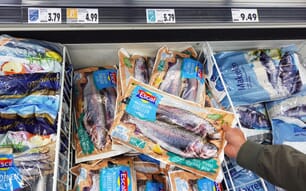Opening the conference, Wally Stevens, GAA Executive Director, noted that there are currently five major challenges aquaculture must address:
- health and disease management
- feed
- environmental/social accountability
- investment capital
- market support
In terms of the growth of aquaculture in the future, Mr Stevens stated that there will be a focus on the development of aquaculture in Africa, through the Responsible Aquaculture Foundation.
Africa has a huge potential for aquaculture production through its available space and resources. As well as helping to meet rising global food demand, aquaculture will also help to alleviate poverty.
So far, Africa's aquaculture production has doubled in a decade from 1.1 per cent to 2.2 per cent. A large majority of current production includes freshwater farming and tilapia production in Egypt.
Following on from Mr Stevens, Ole-Eirik Leroy, Chairman of Marine Harvest, delivered his keynote address.
With over 10,000 employees and operations in all the salmon producing areas, Mr Leroy stated that Marine Harvest aims to lead the blue revolution of aquaculture expansion.
At present, only two per cent of the world's oceans are used for aquaculture. This under utilised resource, in line with increasing demand, presents a fantastic opportunity to expand aquaculture.
Specifically, Mr Leroy stated how salmon production can be expanded as it has the lowest carbon dioxide emissions, when compared with pork and beef production, and it is rich in omega 3 fatty acids and vitamins A, D and B12, making it a nutritious food.
However, although aquaculture is ready to expand, the industry still has lots to learn and there are still challenges to be addressed. Firstly, it is important that any future growth is sustainable - financially, socially and ecologically.
Good regulations are also important and the industry must maintain good relationships with authorities and politicians to bring these regulations forward.
For Marine Harvest, Mr Leroy stated that future strategies include addressing the challenges and continuing to be more innovative, taking control of important parts of the value chain.


